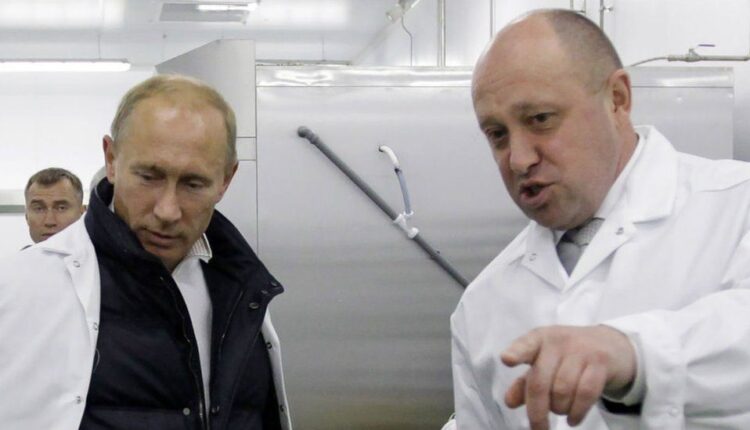Russia’s diplomats were once a key part of President Putin’s foreign policy strategy. But that has all changed.
In the years leading up to Russia’s full-scale invasion of Ukraine, diplomats lost their authority, their role reduced to echoing the Kremlin’s aggressive rhetoric.
BBC Russian asks former Western diplomats, as well as ex-Kremlin and White House insiders, how Russian diplomacy broke down.
In October 2021, US Undersecretary of State Victoria Nuland went to a meeting at the Russian foreign ministry in Moscow. The man across the table was Russia’s Deputy Foreign Minister Sergei Ryabkov, whom Ms Nuland had known for decades and always got along with.
Mr Rybakov’s American counterparts saw him as a practical, calm negotiator – someone they could talk to even as the two countries’ relationship frayed.
This time, things were different.
Mr Ryabkov read Moscow’s official position from a piece of paper and resisted Ms Nuland’s attempts to start a discussion. Ms Nuland was shocked, according to two people who discussed the incident with her.
She described Mr Ryabkov and one of his colleagues as “robots with papers”, the people said (the State Department declined to comment on the incident).
And outside the negotiating room, Russian diplomats were using increasingly undiplomatic language.
“We spit on Western sanctions.”
“Let me speak. Otherwise, you will really hear what Russian Grad missiles are capable of.”
“Morons” – preceded by an expletive.
These are all quotes from people in positions of authority at the Russian Ministry of Foreign Affairs in recent years.
How did we get here?
A new Cold War
It might be hard to imagine now, but Mr Putin himself told the BBC back in 2000 that “Russia is ready to co-operate with Nato… right up to joining the alliance”.
“I cannot imagine my country isolated from Europe,” he added.
Back then, early in his presidency, Mr Putin was eager to build ties with the West, a former senior Kremlin official told the BBC.
Russian diplomats were a key part of Mr Putin’s team, helping resolve territorial disputes with China and Norway, leading talks on deeper co-operation with European countries, and ensuring a peaceful transition after a revolution in Georgia.
But as Mr Putin became more powerful and experienced, he became increasingly convinced he had all the answers and that diplomats were unnecessary, says Alexander Gabuev, the director of the Carnegie Russia Eurasia Center, who is living in exile in Berlin.
The first signal that a new Cold War was beginning came in 2007 with a speech Mr Putin made to the Munich Security Conference.
In a 30-minute diatribe, he accused Western countries of attempting to build a unipolar world. Russia’s diplomats followed his lead. A year later, when Russia invaded Georgia, Moscow’s Foreign Minister Sergei Lavrov reportedly swore at his UK counterpart, David Miliband, asking: “Who are you to lecture me?”
Western officials still thought it was worth trying to work with Russia. In 2009, Mr Lavrov and the then-US Secretary of State Hillary Clinton pressed a giant red “reset button” in relations, and the two countries seemed to be building co-operation – especially on security issues.
But it soon became obvious to US officials that their Russian counterparts were simply parroting Mr Putin’s growing anti-Western views, says Ben Rhodes, deputy national security advisor to former US President Barack Obama.
Mr Rhodes recalls President Obama having breakfast with Mr Putin in 2009, accompanied by a folk orchestra. He says Mr Putin was more interested in presenting his view of the world than discussing co-operation and that the Russian leader blamed Mr Obama’s predecessor, George W Bush, for betraying Russia.
Source: BBC


Comments are closed.